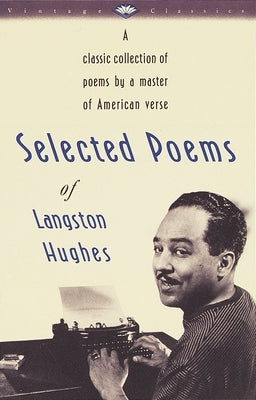Description
The poems Hughes wrote celebrated the experience of invisible men and women: of slaves who "rushed the boots of Washington"; of musicians on Lenox Avenue; of the poor and the lovesick; of losers in "the raffle of night." They conveyed that experience in a voice that blended the spoken with the sung, that turned poetic lines into the phrases of jazz and blues, and that ripped through the curtain separating high from popular culture. They spanned the range from the lyric to the polemic, ringing out "wonder and pain and terror--and the marrow of the bone of life." The collection includes "The Negro Speaks of Rivers," "The Weary Blues," "Still Here," "Song for a Dark Girl," "Montage of a Dream Deferred," and "Refugee in America." It gives us a poet of extraordinary range, directness, and stylistic virtuosity.
Author: Langston Hughes
Publisher: Vintage
Published: 09/12/1990
Pages: 320
Binding Type: Paperback
Weight: 0.65lbs
Size: 7.90h x 5.10w x 0.70d
ISBN13: 9780679728184
ISBN10: 067972818X
BISAC Categories:
- Poetry | American | African American & Black
- Poetry | Subjects & Themes | Death, Grief, Loss
- Poetry | Subjects & Themes | Places
About the Author
LANGSTON HUGHES was born in Joplin, Missouri, in 1902. After graduation from high school, he spent a year in Mexico with his father, then a year studying at Columbia University. His first poem published in a nationally known magazine was "The Negro Speaks of Rivers," which appeared in Crisis in 1921. In 1925, he was awarded the First Prize for Poetry from the magazine Opportunity for "The Weary Blues," which gave its title to his first book of poems, published in 1926. Hughes received his B.A. from Lincoln University in Pennsylvania in 1929. In 1943, he was awarded an honorary Litt.D. by his alma mater; during his lifetime, he was also awarded a Guggenheim Fellowship (1935), a Rosenwald Fellowship (1940), and an American Academy of Arts and Letters Grant (1947). From 1926 until his death in 1967, Hughes devoted his time to writing and lecturing. He wrote poetry, short stories, autobiography, song lyrics, essays, humor, and plays. A cross section of his work was published in 1958 as The Langston Hughes Reader; a Selected Poems first appeared in 1959 and a Collected Poems in 1994. Today, his many works and his contribution to American letters continue to be cherished and celebrated around the world.

